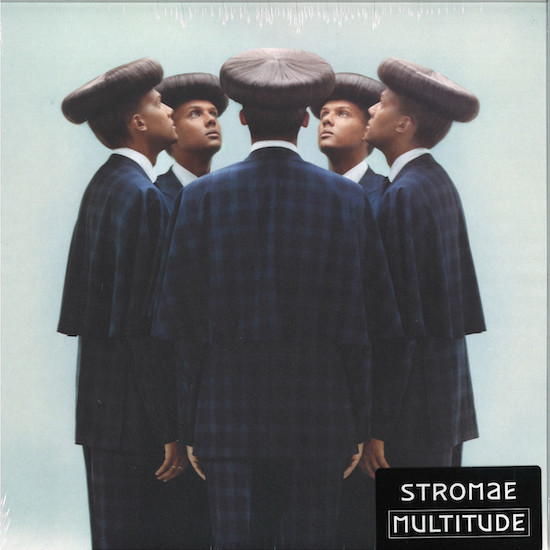Up to now, the idea that Stromae was in some way an exponent of “World Music” always seemed faintly ridiculous. He might have won two awards at the WMAs in 2014, mainly because he was too big to be ignored, but “World” has always been an incoherent term, awkward and open to the interpretation of the beholder. David Byrne said it was a way of relegating music to exotica, “because exotica is beautiful but irrelevant,” and even Womad agreed the term was out of date in 2019. Things have moved on somewhat since the days you could find Edith Piaf records in the “ethnic” section of your local record store, but questions of categorization are far from settled.
Paul Van Haver grew up in the Laeken district of Brussels, with a Belgian Flemish mother and a Rwandan Tutsi father, the latter heritage line surely the qualification that tips him over into “World”, even if he’s essentially a Belgian chansonnier and rapper making his own peculiar and extremely successful brand of eurohop. Stromae’s long-awaited third album with its Bulgarian choirs, erhu and charango players and innovative takes on Bolivian grooves and reggaeton beats, takes this confounding labelling and complicates it even further.
Multitude is World Music with a caveat, by which I mean it’s World if taking music from all across the globe and bringing it into your own artistic universe qualifies as such. Purists might abhor the dilettantish appropriation of sounds and musicians employed from Argentina, India, Mali and Eastern Europe, though its important to remember Brussels is a melting pot too. Stromae grew up in a building with children from the Congo, Rwanda, Cameroon, Senegal, and listened to kassav, salsa, zouk, Motown and James Brown. His sister was the one with the Jacques Brel records in the next bedroom. Furthermore, his mother took the kids backpacking, opening up a galaxy of sounds to impressionable young ears before the internet enabled you to do that from the comfort of your bedroom.
As one of the most powerful artists in popular music with four million sales of his last album (2013’s Racine Carrée) and the weight of Universal Music France behind him, Stromae was able to reach artists across the globe and throw all of these sounds together coherently and effectively. It makes for a bracing listen, combining his undoubted production nous with a wealth of instruments and traditions, all curated together with a deftness and a lightness, ensuring things never sound cluttered or incongruous. Stromae’s genius for taking various sonic elements and forming them into salient, dynamic pop songs goes up a notch here.
As for the songs themselves, nothing grabs you immediately in the same way the most celebrated moments on Racine Carrée did, but that’s not to say they’re not worthy successors. The lead song ‘Santé’ distorts the rhythmic fluidity of a cambian groove, with micro-rhythmic adjustments of the snares making everything feel off-kilter on a first or second listen. Such attention to these odd details might be seen as self-sabotage or acts of detournément to ensure less exposure this time around, though it’s more likely the sign of an artist willing to push the envelope even further in the field of pop.
Multitude is a more mature offering from a man who has been through the wringer with depression the last eight years. He sings behind characters to protect himself: the sex addict of ‘La solassitude’ or the bored father of ‘C’est que du bonheur’; then there’s the clever juxtaposition of ‘Mauvais journée’ and ‘Bonne journée’ – a collective lesson in the power of perception. But he opens himself up on tracks like ‘L’enfer’, sung in the first person, where he confesses to suicidal ideation. His third album may not perform the economic miracles of the second, but it’s a powerful addition to Stromae’s canon and a beautiful gift to the world.



